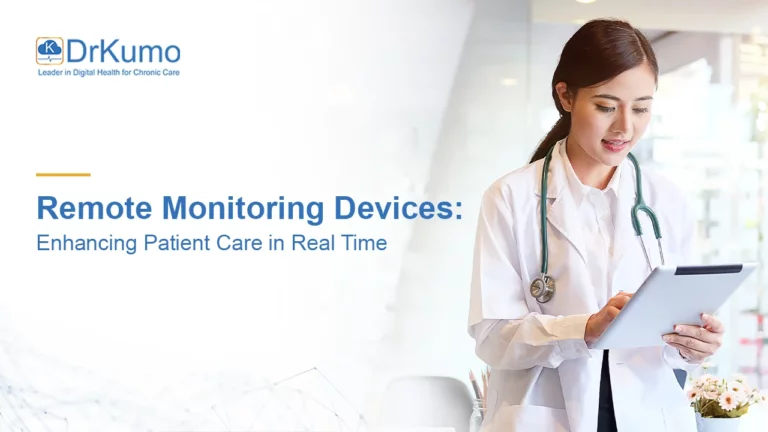Chronic diseases such as diabetes, heart disease, and COPD continue to impose a significant and rising financial burden on healthcare systems globally. However, the implementation of modernized Disease Management Protocols (DMPs) offers an evidence-based, proactive solution. These protocols, built on structured, evidence-based guidelines and powered by new technology, are essential for optimizing patient care while supporting the shift toward Value-Based Care (VBC) and substantially reducing overall healthcare costs.
The Evolving Landscape of Chronic Disease Management
Modern DMPs are no longer static checklists; they are dynamic, data-driven frameworks designed to manage chronic conditions efficiently. By outlining precise, evidence-based care pathways, medication management strategies, and patient education modules, DMPs promote and maintain a high standard of consistency and quality across diverse healthcare settings. This data-driven approach yields measurable results: for example, the strategic implementation of predictive analytics and real-time data within Chronic Disease Management (CDM) has been associated with a potential reduction in hospital admission rates by 20% and improvement in patient quality of life scores by 23% in select studies.
The evolution of these protocols is centered on three core principles: Personalization, Prevention, and Proactive Intervention. This shift moves care delivery away from reactive, expensive crisis management toward sustained, preventative health maintenance.
Driving Down Costs through Prevention and Optimized Care
The primary financial benefit of implementing modern DMPs is their direct impact on healthcare expenditure. By standardizing care and vigorously promoting preventative measures and early-stage management, these protocols significantly minimize the need for high-cost emergency room visits and inpatient hospital admissions.
- Early Detection: DMPs facilitate the continuous, data-driven monitoring of key biometrics, supporting the earlier detection of complications. This leads to timely, less invasive interventions that effectively halt disease progression and associated long-term expenses.
- Medication Adherence: Structured protocols include adherence strategies that ensure patients take necessary medications correctly, preventing exacerbations that could necessitate expensive acute care.
The Technology Three Pillars: AI, Telehealth, and Remote Patient Monitoring (RPM)
Technology integration is the engine of cost-effectiveness in updated DMPs. The synergy of Telehealth, Remote Patient Monitoring (RPM), and Artificial Intelligence (AI) is redefining chronic care delivery:
| Technology | Impact on Efficiency & Cost |
|---|---|
| Telehealth | Enables remote consultations, saving patients time and reducing travel/facility costs for routine follow-ups. |
| Remote Patient Monitoring (RPM) | Provides continuous, real-time physiological data (e.g., glucose levels, blood pressure) to providers, allowing for proactive adjustments before a crisis develops. |
| AI and Machine Learning (ML) | Analyzes vast patient data to predict which patients are at high risk of a future acute event or hospital readmission, allowing providers to focus resources where they are most needed. |
Crucially, as reliance on remote care increases, ensuring Telehealth Cybersecurity and robust patient data privacy remains paramount to fostering trust and maintaining regulatory compliance.
Optimizing Chronic Care Management for Value-Based Outcomes
Chronic Care Management (CCM) is effectively embedded within effective DMPs, ensuring comprehensive, continuous support for patients with long-term conditions. This managed approach moves beyond simply treating the disease to addressing the patient’s holistic needs.
Through structured activities including regular monitoring, medication checks, virtual coaching, and comprehensive lifestyle counseling, healthcare providers can effectively manage chronic diseases while containing costs and improving patient quality of life (QoL). This focus on long-term outcomes and patient engagement is the hallmark of success in the VBC model.
A Sustainable Healthcare Future: Beyond Cost Reduction
The significance of modern DMPs cannot be overstated as healthcare systems face increasing demands. Effective DMPs are not just a cost-cutting measure; they are an essential component for achieving the quadruple aim of healthcare: improving patient outcomes, enhancing patient experience, lowering costs, and improving provider satisfaction.
The Role of nurses in improving health care access and quality highlights the necessity of multidisciplinary care teams. By strategically implementing robust DMPs, healthcare organizations take crucial steps toward a more efficient, patient-centric, and financially resilient healthcare future. These evidence-based guidelines, powered by predictive analytics and RPM, not only mitigate financial burdens but also solidify the foundation for long-term health system stability and superior patient care delivery.
DrKumo Digital Health Solutions: Applying Modern DMP Technology
Leading the charge in the digital health space, companies like DrKumo Digital Health Solutions demonstrate the practical application of modern DMPs. DrKumo’s platform integrates RPM and AI-driven analytics to provide continuous, real-time health data to care teams. This proactive approach allows clinicians to intervene based on early-warning signs, rather than waiting for an acute event.
By offering secure, continuous monitoring and specialized care coordination, DrKumo embodies the transition toward a preventative, data-driven chronic care model, significantly improving patient outcomes and offering measurable financial value for healthcare providers.
Takeaways
The implementation of modern DMPs is unequivocally the most vital strategy for mitigating the financial burden of chronic disease while simultaneously achieving the highest standards of care. By leveraging dynamic frameworks powered by Telehealth, RPM, and predictive AI, healthcare systems can transition successfully from reactive sick care to proactive, VBC.
Ultimately, DMPs not only streamline resource allocation and reduce high-cost events but also secure a more patient-centric, efficient, and financially sustainable future for global healthcare.
Make an essential change in your team’s chronic care delivery. Collaborate with DrKumo Digital Health Solutions to utilize AI-driven care strategies that enhance patient results and optimize your Chronic Care Management (CCM) workflows. Contact us today to discover how you can significantly boost efficiency and expand your care capabilities.
Disclaimer: This article is designed for informational purposes for healthcare providers, administrators, and industry professionals. The content discusses general chronic DMPs, technology applications, and financial strategies. It is not intended to serve as professional medical guidance, legal advice regarding compliance, or specific financial counsel. Healthcare providers must exercise independent professional judgment, adhere to all applicable regulatory guidelines, and conduct thorough due diligence before implementing any technology, protocol changes, or workflow modifications mentioned herein.








